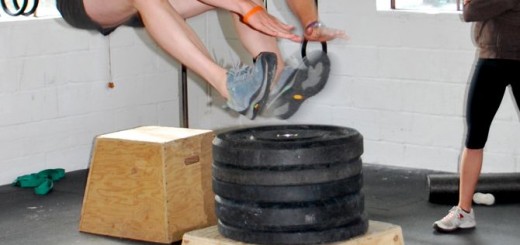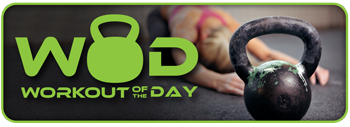Fatigue: The Workout Killer. Athlete, Know Thy Body
Fatigue is the killer of any good workout. Knowing which kind you have is even more important. Muscular, Neural, Neuroendocrine or Environmental? Listen to your body, listen to the experts and take a deload training week when necessary.
HOW A SERIOUS ATHLETE SHOULD HANDLE FATIGUE
“I’m getting too old for this shit.” – Roger Murtaugh, “Lethal Weapon”
At some point in a life of toil in the gym the realization dawns upon you that somehow, for inexplicable reasons, you just don’t have it anymore. We all have seen someone feel great one day and then suck the next, and peaking for competition is one of the most challenging aspects of training.
“No pain, no gain.” – Jane Fonda
I bet you never thought you’d see a Jane Fonda quote on Breaking Muscle, but the philosophy behind this expression is a dominant current in bodybuilding training. For better or for worse, bodybuilding training has the biggest influence on the training of athletes, because while a coach may emphasize Olympic movements and squats, everyonewants big guns and abs. For a bodybuilder training this way can be a fast route to staleness, but when an athlete with other training demands follows suit they can end up feeling old very quickly.
 Most sports people who lift weights for any volume of work are engaged in anaerobic sports such as football, hockey, rugby, or track and field. These sports all require high levels of power, strength, and speed, making weight training an ideal training tool. Unfortunately, unlike strength athletes whose training can largely remain housed within a gym, field athletes find they need to balance numerous training methods together. Sport-specific training, sprint training, plyometrics, jump training, movement efficiency, mobility work, massage, physiotherapy, cardiovascular training, intervals, and the list goes on.These all have an impact on the body’s ability to adapt and recover from weight training. So for any athlete planning to train for a sport, he or she requires a balance of a huge range of factors that most strength athlete will ignore by and large.
Most sports people who lift weights for any volume of work are engaged in anaerobic sports such as football, hockey, rugby, or track and field. These sports all require high levels of power, strength, and speed, making weight training an ideal training tool. Unfortunately, unlike strength athletes whose training can largely remain housed within a gym, field athletes find they need to balance numerous training methods together. Sport-specific training, sprint training, plyometrics, jump training, movement efficiency, mobility work, massage, physiotherapy, cardiovascular training, intervals, and the list goes on.These all have an impact on the body’s ability to adapt and recover from weight training. So for any athlete planning to train for a sport, he or she requires a balance of a huge range of factors that most strength athlete will ignore by and large.
How do you fit all this in and not wind up like Murtaugh?
Most people, men especially, think they can do everything at 100% intensity and that anything less is just an excuse. These are the people who seem to wind up injured or constantly sore and in a rut. Your body has a limited ability to accommodate so many different training methods, especially when they end up training entirely different bio-motor qualities. Specializing in everything means being mediocre at everything.
“Fatigue makes cowards of us all.” – Vince Lombardi
Fatigue is the killer of any good workout. We can split fatigue up as being due to four main causes:
Local Muscular Fatigue: This is a phenomenon that can be caused by insufficient energy to power high intensity workouts and increased levels of muscular discomfort.
Neural Fatigue: While the local muscular system can recover quite quickly, fatigue of the central nervous system can take much longer. This means that your performance while training is largely inhibited by neural rather than muscular factors most of the time.
Neuroendocrine Fatigue: It is very rare, but consistently over stressing the body’s reserves can eventually lead to negative effects on hormone status. This causescortisol to rise, testosterone to drop, and sets up a situation where you become progressively less able to recover properly.
Environmental Fatigue: Lack of sleep, stress at work, the pressure of exams, and jetlag are some possibilities. While these will have an impact on the nervous system, we can consider the causes separate to those that training imposes.
How Do Different Forms of Training Increase Fatigue?
The propensity of different forms of training to cause fatigue will vary. We can largely discount neuroendocrine fatigue altogether as it is very rare for training to have this effect even when people are trained with very high volumes. Environmental fatigue is outside the scope of this article, but it doesn’t need to be said that with research showing longer sleepcan improve performance in sports, and that stress can have negative impact on hormone status, everyone should be cognisant of the need to manage external factors where they can.
This leaves us to deal with local muscular fatigue and neural fatigue.
Neural Fatigue
 High intensity training will have the largest impact on the central nervous system and can take weeks, if not months to recover from. This is why athletes who must peak annually will struggle to reproduce personal best performances for any extended period of time. High intensity training means anything where you seek to maximally project the body or a weight in space and includes plyometrics, sprint training, weight lifting at high intensities, and the actual sport training itself.
High intensity training will have the largest impact on the central nervous system and can take weeks, if not months to recover from. This is why athletes who must peak annually will struggle to reproduce personal best performances for any extended period of time. High intensity training means anything where you seek to maximally project the body or a weight in space and includes plyometrics, sprint training, weight lifting at high intensities, and the actual sport training itself.
Given this fact, sequencing these types of training methods must be considered carefully to avoid ending up in a situation where you are training with high intensities on a daily basis.Consider the problem of following the hardcore training style of most bodybuilders, who may train one or two body parts a day four times a week, frequently lifting to failure. Now, if an athlete does this how does he manage to perform his sprint training, plyometrics, sports training, play in competition, and somehow still perform?
The answer is he would not.
Let’s consider a case where he limits his workouts in the gym to just two days a week but has to fit in three sprint training sessions, two plyometric workouts, and practice his sport thrice weekly. He certainly cannot combine those methods without paying attention to how they impact on the overall state of his body.
Local Muscular Fatigue
Higher volume, lower intensity work causes the greatest amount of muscle breakdown. This is how most bodybuilders would train and offers a clue why they can train more frequently than most athletes engaged in higher intensity training.Cardio and other forms of sub-maximal training for lots of reps will generate depletion of fuels needed for training as well as extensive muscle fatigue.
Squaring the Circle
Every athlete and every sport will need to develop an individualized approach, but here are some suggestions from the field that can provide a set of guidelines:
 Ensure you sleep 8-10 hours every night.
Ensure you sleep 8-10 hours every night.- Follow a high protein diet with greater carb intake the more high repetition work you perform.
- Ensure you check for any nutrient deficiencies and supplement accordingly.
- The use of essential amino acid supplements around training can boost muscular recovery markedly.
- As per the advice of Charlie Francis, try to limit high intensity training days to no more than four a week.
- On these high intensity days it is expedient to combine workouts such that sprints precedes plyometrics. By limiting the actual number of days you spend doing high intensity work for the legs in this way, you improve recovery compared to training the same number of sessions on separate days.
- Try not to psych yourself up. If you need to shout and scream before every set you will burn out very quickly.
- Unless you are in your off-season, if your main goal is a sport such as football, limit weight training days to just a couple in the week and avoid using very high intensities (over 90% will accelerate CNS stress)
- Check your heart rate every morning and morning body temperate. Sudden elevations from a trend could be markers that you are pushing yourself too hard.
- Implement regular recovery and massage session.
- It sounds trite but focus on being mindful to limit mental stress to help recovery of your muscles.
- Everything you do should incorporate varying intensities. Employing sub-maximal forms of weight training, plyometrics and sprint work will both increase work capacity while limiting CNS fatigue.
- Limit usage of stimulants.
- Use training aids to limit stress on joints. For example, straps for someone performing snatches regularly can save your hands a beating.
- The more advanced you get the more focused you should be. Focus on one or at most two qualities you wish to improve and accept you will be happy to maintain your performance across everything else.
Original Article by: Reggie Johal at breakingmuscle.com





